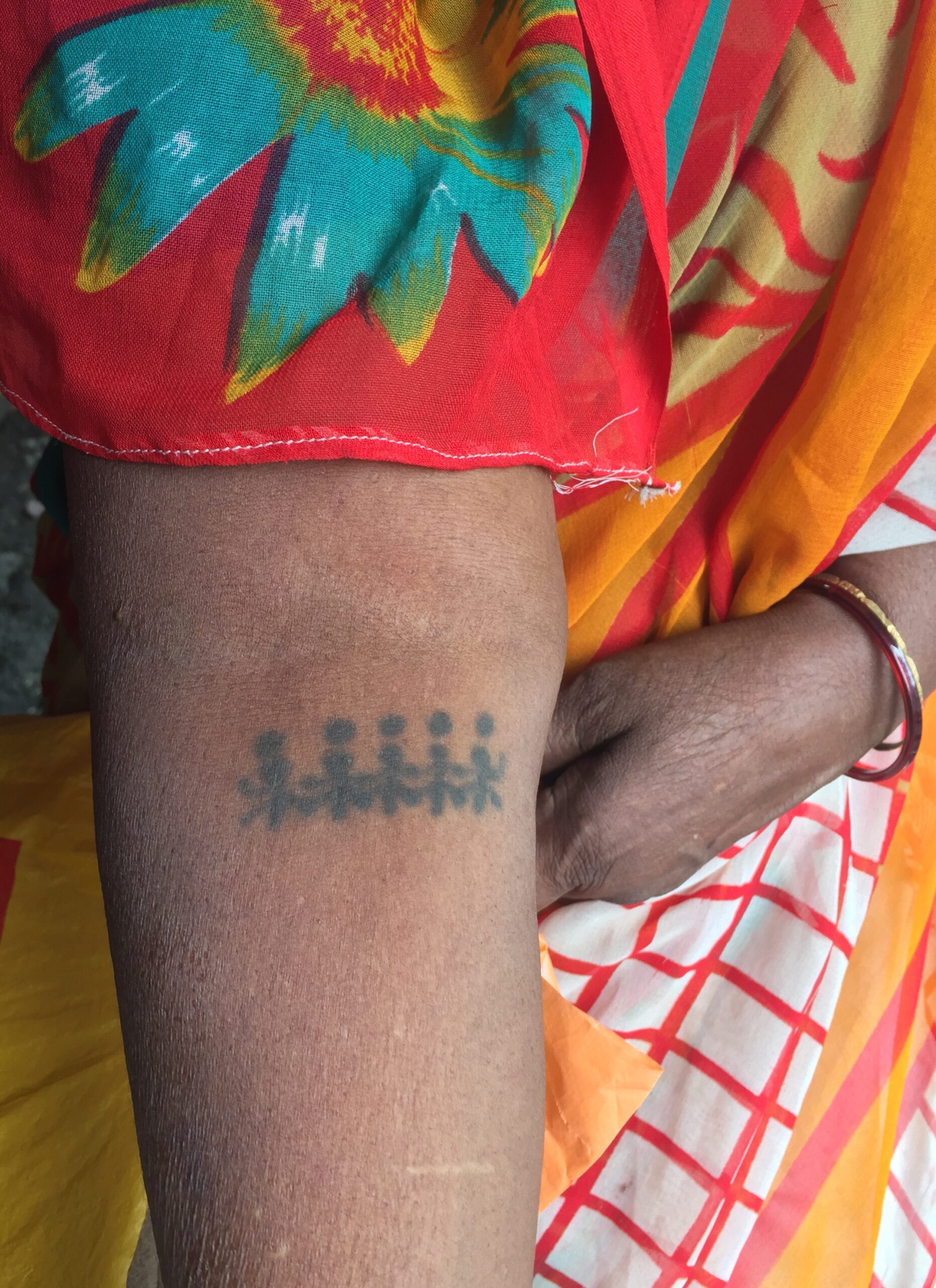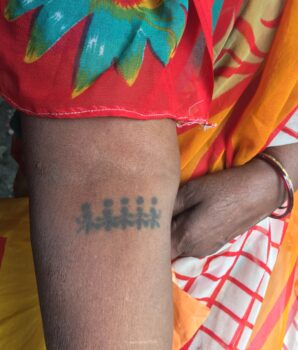We were sitting at a bus stop at 1 PM on a summer day, she because she had a connecting bus to catch back to her village and I for my legs hurt of walking too long. She, a plum lady of 56, spoke in a heavy Marathi accent that implied experience of at least 80 years of life. She spoke of how in her time (I love how people speak of their times with nostalgia, gladness and ownership) it was unacceptable for women of class to not have tattoos; ‘Gondhan‘ she called it in Marathi. She said she got her’s, one on her hand, one on her forehead when she was a child. The 3 on her neck are from youth. They had gotten infected, her neck had become a big balloon, like a frog’s. She could not afford treatment; for her brother was sick too. She used a natural fix which made the balloon irritable, red, and painful.
When she got married, her husband and mother-in-law made this gondhan on her arm, because it is important to have Gondhan on arms for nice women. Her daughters don’t have them, she said. She was growing older as she spoke, I could hear it in her accent. The gladness from her eyes, of the time past, of time that cannot be taken away, the one that need not be worried about, that was lived and kept in a shelf safely, faded to be replaced by the worry that can only be felt about time unlived still. She worried for the modernizing world, the growing distances of connecting buses and she worried for us, the un-nice women of no class and no tattoos on arms to prove otherwise.

